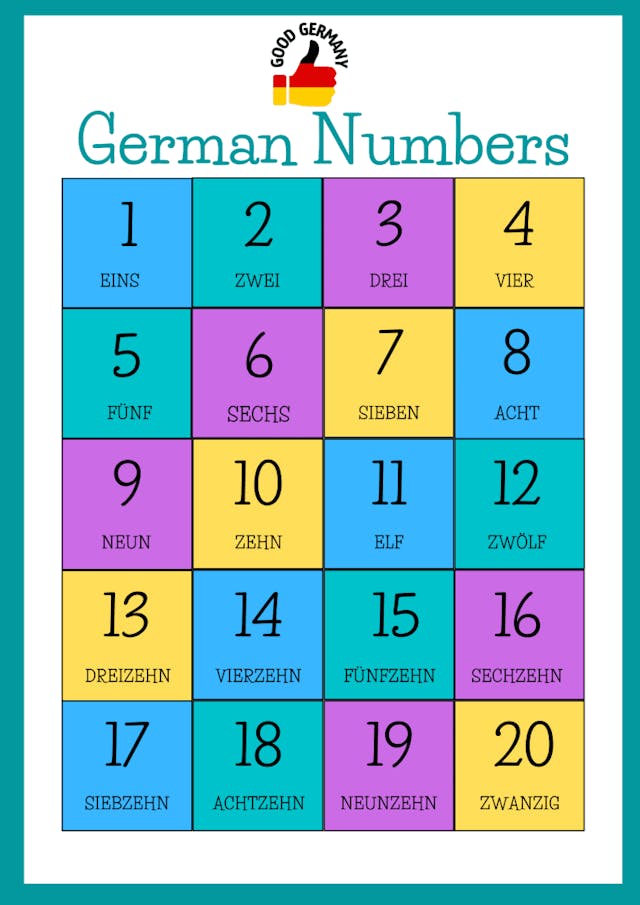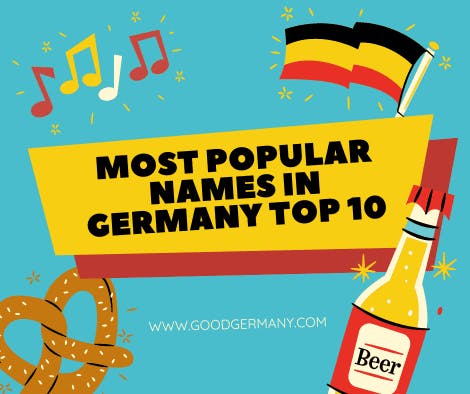Most Popular Names in Germany Top 10
2023-08-28

Introduction
Names hold a mirror to the culture and society of a country, reflecting its history, values, and trends. Germany, with its rich heritage and modern influences, showcases a diverse array of names that have gained popularity over the years.
Male Names:
Lukas
Elias
Benjamin
Leon
Paul
Jonas
Finn
Maximilian
Noah
David
Female Names:
Emma
Mia
Hannah
Emilia
Lina
Anna
Lea
Sophia
Marie
Lena
Traditional German Names
Classic names like Heinrich, Gertrude, and Wilhelm have deep roots in German history. These names have a timeless quality that continues to attract parents looking for names with a historical touch.
Modern Trends in Naming
In recent years, there has been a shift towards more contemporary names like Liam, Mia, and Noah. These names resonate with modern sensibilities while maintaining a connection to German heritage.
Gender-Neutral Names
Gender-neutral names such as Alex, Jordan, and Taylor are gaining popularity as parents seek names that challenge traditional gender norms and offer a sense of inclusivity.
Celebrity-Inspired Names
Celebrities often influence naming trends. Names like Lena, after the popular singer, and Lukas, inspired by a well-loved football player, have gained prominence.
Name Meanings and Origins
Names like Friedrich, meaning “peaceful ruler,” and Amelia, meaning “industrious,” carry profound meanings that parents connect with on a personal level.
Factors Influencing Name Choices
Religious beliefs, historical figures, and family traditions all play a role in naming decisions. Parents often choose names that hold personal significance.
Regional Variations in Names
Different regions in Germany have their own naming preferences. Names popular in the north might differ from those in the south, adding to the country’s name diversity.
Naming Laws in Germany
Germany has strict naming laws to prevent names that could be detrimental to a child’s well-being. Names must indicate the gender and not be offensive.
Name Evolution Over Time
Names evolve with societal changes. Old names experience resurgence, while others fade into obscurity due to evolving tastes.
The Role of Surnames
Surnames like Schneider (tailor) and Fischer (fisherman) often have occupational origins, providing insights into the ancestral professions of families.
Unconventional Naming Choices
Some parents opt for unique names like Jasper or Elke, making their child stand out in a crowd and fostering individuality.
Impact of Globalization on Names
Globalization has introduced international names to Germany. Names like Sophia and Alexander have gained popularity due to their universal appeal.
The Emotional Connection to Names
Names are emotionally charged, connecting individuals to their cultural roots and family legacies. They become a part of one’s identity.
Conclusion
In conclusion, names in Germany reflect a captivating blend of tradition and modernity. From traditional names rooted in history to contemporary choices influenced by global trends, German names continue to intrigue and inspire. Choosing a name is a deeply personal decision, a glimpse into a parent’s hopes and aspirations for their child.
FAQs
Q: Can I give my child any name in Germany?
A: While Germany allows a range of names, they must adhere to certain guidelines to ensure the child’s well-being.
Q: Are traditional names losing popularity?
A: Traditional names are still cherished, but modern and international names are gaining traction.
Q: What’s the significance of gender-neutral names?
A: Gender-neutral names challenge stereotypes and promote inclusivity and equality.
Q: Do names have legal implications in Germany?
A: Yes, names are subject to legal regulations to prevent names that could harm the child’s interests.
Q: How do German names compare to naming trends in other countries?
A: German names share similarities with international trends while maintaining their unique cultural flavor.
Share
Tag
Related Blog

15 List of German Last Names(Surnames) + Meanings
2024-01-14
German Numbers – From 0 To 2000
2023-09-07
The 6 Best Ways To Say Thank You In German
2023-09-07
Germany Language Alphabet
2023-09-01
Most Popular Names in Germany Top 10
2023-08-28
German Prepositions with Dative vs. Accusative: A Comprehensive Guide
2023-08-27
Greetings by Region: German
2023-07-24
German Basic Conversation
2023-07-13
Best Site to Learn German - Top 12
2023-07-06